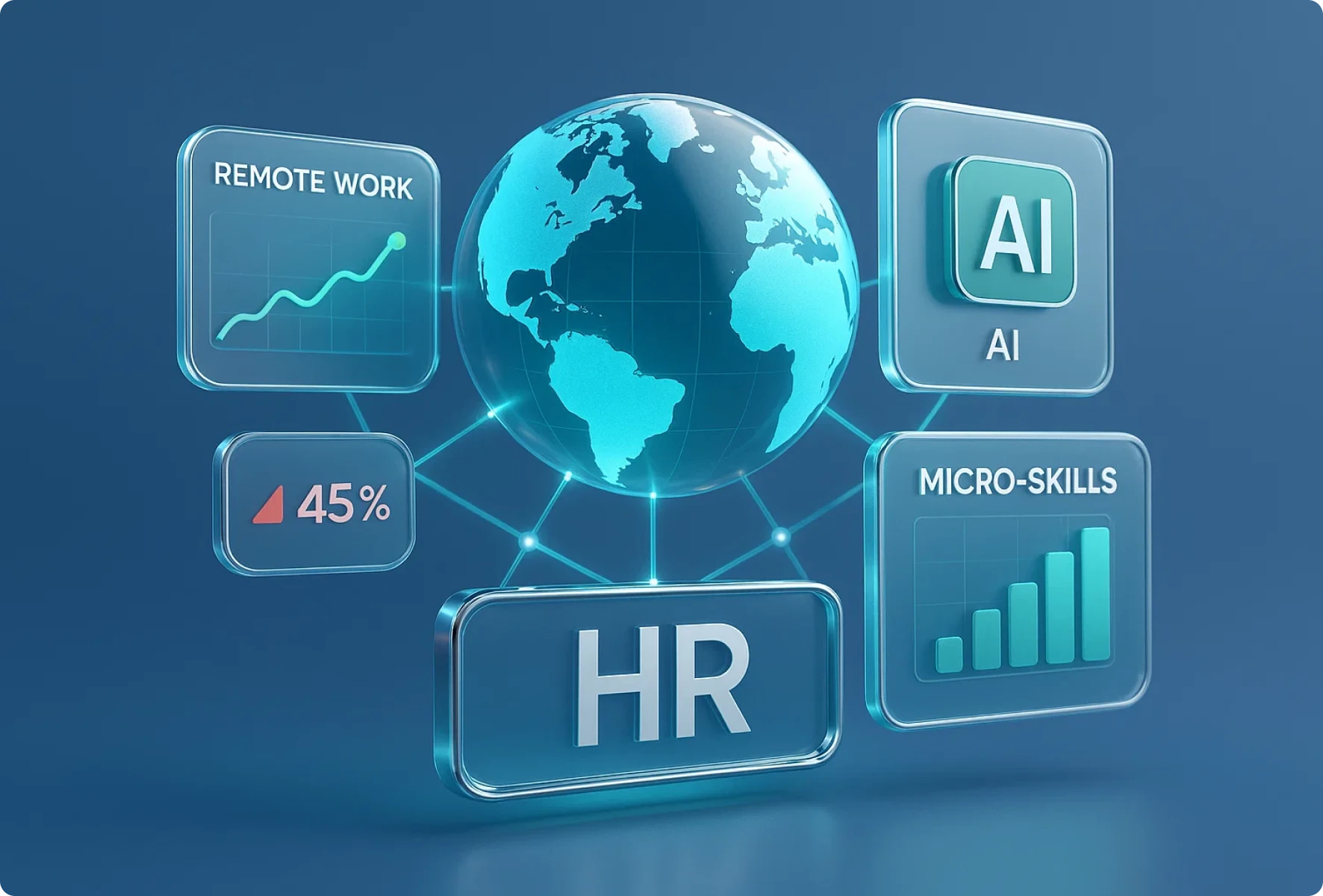
Productivity, burnout, skills, and AI — these aren't just buzzwords. They're transforming how we work. We reviewed Mercer's Global Talent Trends 2024-2025 report and selected 10 key insights every HR, L&D, and business leader using platforms like Quilgo should know — especially those invested in assessment, training, and digital-first work strategies.
Source: Mercer Global Talent Trends 2024-2025 (PDF)
Generative AI is already reshaping 80% of today's roles.
Virtually every job is expected to change due to AI disruption. While 56% of executives view AI as a job creator, only 21% have seen this materialize so far. However, 56% of HR leaders report that it has already improved efficiency, and 46% cite increased innovation.
Skills gaps are now the #1 risk to business growth
41% of executives cite upskilling and reskilling as a top concern — higher than economic volatility. Yet only 37% believe their investments in skills will pay off this year.
Productivity is the top driver of transformation — but only 17% feel ready.
Despite widespread attention, only 17% of HR leaders say their organization is advanced in addressing productivity issues. Work redesign — once viewed as low-impact — has now proven to be most effective in driving real productivity gains.
What makes employees truly thrive at work?
A Mercer regression model shows five key drivers:
- Psychological safety
- Digital enablement
- Skills growth and job security
- Financial stability
- Sense of purpose
Forty-two per cent of employees thriving is explained by these factors combined.
The rise of internal talent marketplaces
Employees want to contribute more — and technology can help them do so.
The best talent marketplaces connect workers to projects, personalize learning, and empower internal mobility. Three in four employees say lateral moves are rare, indicating significant room for improvement.
60% of organizations now link pay to skill development
The “pay-for-skills” model is quickly becoming a standard. However, fewer than half of workers believe their managers understand their current skills, showing a gap between intent and execution.
Lessons from Arcadis: Becoming a skills-powered organization
Global consultancy Arcadis redesigned its talent strategy around skills. Fifty-six per cent of test users accessed internal career opportunities, and 20% engaged with personalized learning — demonstrating early success in building a future-ready workforce.
Human-centered tech is more important than ever
While 65% of leaders believe their organizations need to embrace more digital solutions, 32% of employees report feeling overwhelmed by the tools they are expected to use. This disconnect is one of the top causes of employee burnout. To foster a thriving "digital-first" culture, organizations must prioritize clarity, simplicity, and alignment with human needs.
Trust and purpose still matter
Eighty-four per cent of employees say their work contributes to a worthwhile mission. Trust in leadership and alignment with sustainability values are emerging as core drivers of retention and engagement.
Personalized rewards are the future.
46% of employees would give up a 10% raise for better well-being benefits. Only 15% of companies offer hyper-personalized reward experiences—a significant opportunity for differentiation.
Why this matters
HR, L&D, and EdTech teams need tools that match the pace of today's talent shifts. Quilgo helps you automate testing, validate skills, and deliver fair, secure assessments.






.webp)
